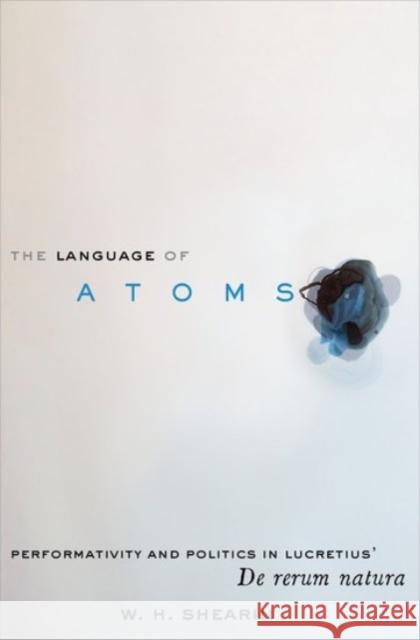The Language of Atoms: Performativity and Politics in Lucretius' de Rerum Natura » książka
The Language of Atoms: Performativity and Politics in Lucretius' de Rerum Natura
ISBN-13: 9780190202422 / Angielski / Twarda / 2015 / 232 str.
While scholarship on Lucretius has looked to connect De rerum natura to its larger cultural and historical context, it has never turned to speech act theory in this quest. This omission is striking at least in so far as speech act theory was developed precisely as a way of locating language (including texts) within a theory of action. At its root speech act theory is about how language is part of history and acts within it, and it thus holds promise for addressing this long-standing scholarly concern. Further, as this book asserts, speech act theory is not some modern development that one may apply to De rerum natura but rather a theory native, at least in some respects, to Epicurus' school. The argument contends that a central problem in Epicurean semantics may be resolved if we allow that Epicurus (or his school) developed an understanding of performative language. It reads the fragmentary remains of Epicurus' writing on language against central texts of speech act theory such as J. L. Austin's How to Do Things with Words and Emile Benveniste's definition of the performative as a form of speaking in which the act of speech creates its own referent. The book moves on to consider the larger place of performativity within De rerum natura, and the poem's insight on the acts of promising and naming. Bridging critical theory and ancient philosophy, The Language of Atoms will engage scholars in a host of humanities disciplines, including Classics, Philosophy, and Comparative Literature.











